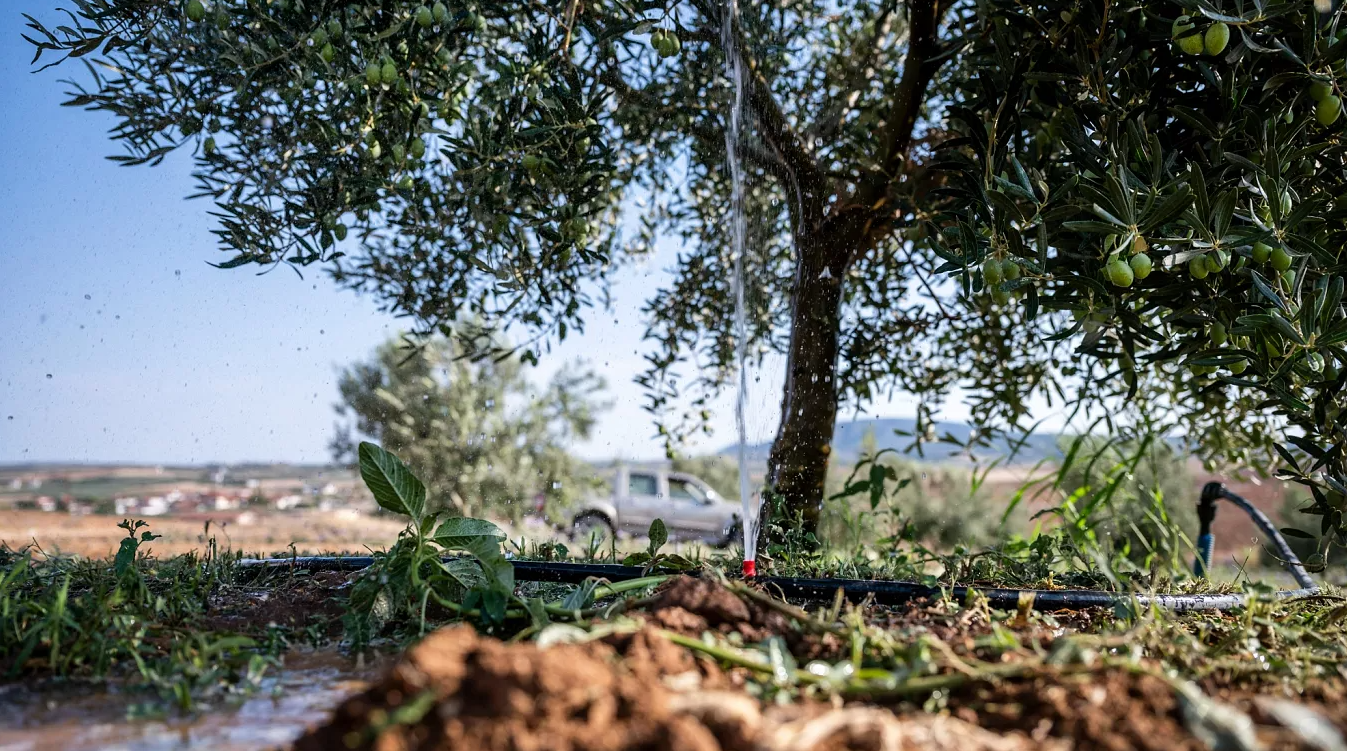
The report, published on Monday in Environmental Research Letters, draws connections between surging food costs and extreme weather events — including unprecedented heatwaves, droughts, and flooding — from 2022 to 2024. Researchers found that 16 commonly consumed food items in 18 countries have become significantly more expensive, with staples like UK-grown potatoes and Spanish olive oil among the most affected.
"Until emissions reach net zero, extreme weather events will intensify, continuing to devastate crops and raise food prices globally," said Dr. Maximillian Kotz, a Marie Curie postdoctoral fellow at the Barcelona Supercomputing Centre and lead author of the study.
Extreme weather intensifies food inflation
The report's findings are stark: climate extremes have disrupted harvests across the globe, sending shockwaves through local and international markets.
In the UK, potato prices jumped 22% between January and February 2024 after a deluge of winter rainfall battered arable land. England experienced its second-worst harvest on record, exacerbated by heavy rains made more likely and more intense by global warming, according to scientists. Amber Sawyer, a climate analyst at the UK's Energy and Climate Intelligence Unit (ECIU), said British farmers have been "ping-ponged between extremes" — first the unprecedented 40°C heat in 2022, then relentless rainfall through 2023 and early 2024.
"It's no longer about distant projections," Sawyer said. "Farmers are living the consequences of climate change every day."
Elsewhere in Europe, olive oil prices soared by 50% in Spain and Italy after successive years of drought. Spain, which supplies around 40% of the world's olive oil, saw its output halved in 2022 following record spring heat and water shortages that shrivelled olive trees and reduced fruit size. The dry conditions persisted into 2023, compounding the crisis.
This May marked the world's second-warmest on record, surpassed only by May 2024. Meanwhile, parts of northwest Europe recorded their driest and least fertile spring since at least 1979, raising fresh concerns for cereal crops like wheat and maize.
Global crop staples hit: rice, cocoa, coffee
The study, conducted by researchers from six European institutions — including the Barcelona Supercomputing Centre, the Potsdam Institute for Climate Impact Research, and the European Central Bank — also tracked climate-linked price spikes in food commodities worldwide.
In East Asia, a sweltering summer pushed temperatures to new highs across South Korea, Japan, China, and India. By September 2024, Korean cabbage prices had climbed 70% year-on-year, while Japanese rice rose 48%.
In the U.S., severe drought across California and Arizona — which together account for over 40% of American vegetable production — led to an 80% rise in vegetable producer prices by the end of 2022.
Cocoa and coffee also saw dramatic shifts. Ghana and Côte d'Ivoire, which produce nearly 60% of global cocoa, were hit by record-breaking heat in February 2024. Combined with a prolonged drought, the heat triggered a staggering 300% rise in cocoa prices compared to the previous year. Coffee-producing regions in Brazil and Vietnam faced similar challenges, with crop-damaging heatwaves and water shortages driving up costs.
Rising prices pose wider risks to health and stability
Beyond the supermarket, climate-related food inflation poses deeper societal threats, the study warns. Households in lower-income brackets — both in rich and developing countries — spend a larger share of their income on food, making them more vulnerable to price shocks.
Researchers also raise alarms over the public health implications. As prices rise, families are more likely to switch to cheaper, less nutritious foods, which may worsen diet-related illnesses including heart disease, diabetes, and obesity-related cancers.
The study further highlights the potential for social unrest, citing historical links between food shortages, inflation, and political instability. "Food price inflation is not just an economic issue," said Kotz. "It can shape public opinion, influence election outcomes, and destabilise communities."
Indeed, food prices emerged as a major issue in the 2024 UK and U.S. elections and were a flashpoint in Argentina's 2023 vote. According to recent surveys, rising grocery bills now rank just behind extreme heat as the most commonly perceived impact of climate change in people's lives.
Call for climate resilience and agricultural reform
The authors conclude with a clear call to action: improving the resilience of food systems is now an urgent necessity.
They recommend investment in early-warning systems and seasonal climate forecasts that could help farmers anticipate weather extremes and adjust planting strategies accordingly. Longer-term solutions, such as crop diversification and improved irrigation infrastructure, will also be essential — though not without challenges.
"Adapting agriculture to climate extremes is not just a technical question," the study notes. "There are economic, logistical and political barriers that need to be addressed through coordinated policy and international cooperation."
Without decisive action, the report warns, the climate crisis will continue to undermine food security — with consequences not only at the checkout but across societies.